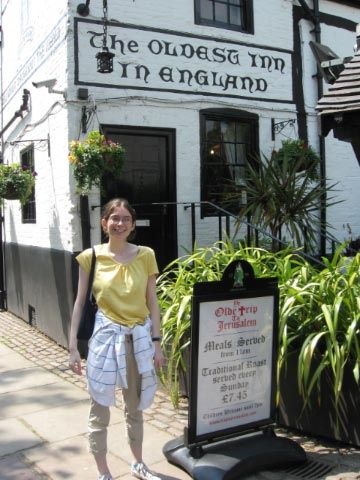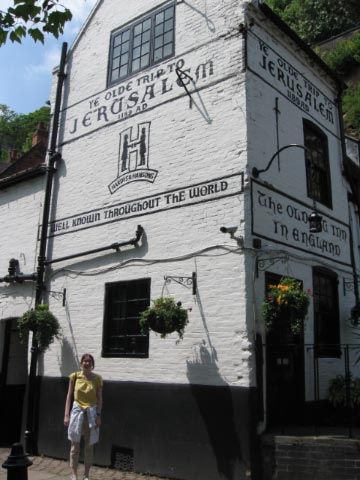The future is now, so I don't see how the time isn't right for me . . .
Being a woman who likes genre fiction is one of the most exhausting experiences on earth.
At the moment, I'd say there are two broad categories of genre fiction: the "gritty" stuff, like Game of Thrones and The Walking Dead, and the more "fluffy" ones like the Marvel movies. I've said before that I don't have a whole lot of time for gritty shows; the main reason is that I find surrounding myself with that kind of negativity tiring, but there's another aspect. The thing is, "gritty" seems to translate- in the minds of showrunners, anyway- into "bad shit happens to women." The bad shit isn't
 |
| Pictured: what women can expect from "gritty" drama. |
always limited to the female characters, obviously, but there's a specific dimension to the way women are hurt in these shows. It's always to do with their bodies. They're groped, raped, tortured, suffer miscarriages, die in childbirth- it always seems to be some variation of either a woman being made vulnerable by her body or a woman being betrayed by her body. The female vessel is treated as an essentially weak, fragile, corrupt piece of meat in a way that mens' bodies just aren't. Men get hurt; men die; but men die heroically in battle, men take a bullet for their friends, men make heroic last stands. Maybe a single tear runs down their face while they do it. Often their death concludes with a brief glimpse of them in the afterlife, being greeted by the women whose bodies paved their way to heroism.
In some ways, this hurts men as much as it does women; it perpetuates a myth of male superheroism
that leaves no room for men to be weak or emotional or hurt. But the visceral disdain for the bodies of women- that cuts deep. And it cuts into male and female viewers alike. We all learn, hearing these stories, that this is what women should expect: from men, from other women, from themselves. Is it any wonder, then, that violence against women is endemic? We've created an endless cycle of regurtiating misogyny into our pop culture and then playing out the scenarios we see onscreen. And with "gritty" stories becoming increasingly popular, I only see this trend on the rise.
So what about the other side of the coin?
 |
| Remember girls, this is what you're good for. |
In a way, gritty and fluffy genre shows create a one-two punch of female disempowerment. Gritty shows tell women that their bodies are weak and disposable. In a lot of respect, fluffy shows do that as well: how many superhero movies has the girlfriend/mother character died in? There's a
whole trope named after it. And it's not just death; it's disrespect. This past summer, Guardians of the Galaxy opened with Peter Quill's mother on her deathbed, and shows the sole woman on the team being called a "green whore" as a joke. In The Avengers, the sole female superhero is taunted by the villain, who calls her a "mewling quim" (an antiquated slang term for "vagina;" in modern parlance, a "whiny cunt.") Buffy the Vampire Slayer, often held up as a paragon of feminist TV, had its heroine inadverdantly turn her boyfriend into a monster by having sex with him. But I think the trends of fluffy TV, when it comes to women, are deeper and more insiduous than just hurting them physically. That's an aspect, yes. But what these shows really say- beyond "you're gonna get hurt-" is "you can't be a hero."
I don't think I've posted about BBC's The Musketeers here before, but I was absolutely crazy about the first season. It wasn't perfect when it came to women (oh look, more dead girlfriends and attempted rapes) but the most prominent female character, Constance, got to her her own miniature hero's journey. She wanted to learn how to fight, and she did. At one point, she and one of the men find themselves backed into a corner by a bad guy. Constance grabs a sword. "Have you got this?" her companion asks her. She bares her teeth. "
Absolutely." And then she kicks the bad guy's ass.
How great is that? Finally, a heroine is being given the same strengths as a hero: she wants to learn to be strong, and she does. She gets to quip at the bad guys before proving she's stronger than they are. This is what we want: women who get to kick ass, who get to be funny, who get to be the same kind of wish fulfillment as the male characters. Escapist fantasy is, after all, a form of wish fulfillment: we want to be Peter Quill, or Robin Hood, or one of the Three Musketeers. When you were a kid, did you ever play games based on whatever TV or movies you watched? I did. Power Rangers was a popular choice, and so was Pokemon. I notice, however, that the older boys and girls get- once they reach school age or so- their forms of fantasy diverge. My female friends and I increasingly made up our own stories, independent of what we saw when we got home from school and turned on the TV. Our male classmates were still playing at Star Wars and Indiana Jones, squabbling over who got to be Indy or Han Solo or Luke Skywalker. When girls joined in those games, we often made up new characters to play (my character's name when we played Indiana Jones was "Sarah.") After all, it's not like heroines were thick on the ground; Star Wars fans got to be Leia (and to be reminded by geek culture that their value still boiled down to how they looked in a gold bikini) and if you were into Indiana Jones, there was Marion Ravenwood. (There were two other prominent women in the movies- the screeching Willie Scott, or Elsa the Nazi seductress. Neither held much appeal for would-be adventurers.) Meanwhile if you were a boy, you could be Luke Skywalker or Han Solo or Indiana Jones or Indiana's father Henry or Lando Calrissian, or Chewbacca, or . . .
You get my point.
 |
You thought you boyfriend would respect you and your choices?
That's adorable. |
So tying this back around to The Musketeers: Constance's arc wasn't perfect, and her primary narrative function was to be a love interest for d'Artagnan, but she still had her own stuff going on. Then season two happened, and it all went to
complete shit. Constance, trapped in an abusive
marriage, was berated by her husband on one side and her would-be lover on the other, being called a "coward" for being afraid of being branded an adulteress and/or being hurt by her husband. She didn't get to pick up any more swords. Instead, chastised, she admitted that she was in the wrong for wanting to dictate the course of her own life, and for being constrained by the endless restrictions applied to women's lives. "Hypocrite" was the specific word she used. And then, having been thoroughly humbled by a man who knew what she wanted better than she did, she married him, and they're going to live happily ever after!
What . . . the . . . fuck.
Where did
my Constance go? Where was the heroine I'd wanted so badly as a child? Where was the woman who kicked ass and took names and stood up for her friends- and more importantly, stood up for herself? Why were her thoughts and needs and desires being treated as subordinate to her boyfriend's feelings? Where was the woman who, if I'd been fifteen years younger, I would have been playing with my friends at recess? Doesn't that little girl- all the little girls now who watch the show- get a heroine too?
And it wasn't just Constance: it seemed like this season was an endless parade of women being abused, murdered, tossed aside, and forgotten. The most egregious example is probably the nameless sex worker murdered by the season big bad (even in the end credits, she was only credited as "Prostitute") but she certainly wasn't an anomaly. There was Marguerite, seduced by one of the leads, subsequently abandoned and then blackmailed, and finally succumbing to despair and taking her own life. Marguerite was never her own character; she was an object to move the story along, someone to provide angst for her lover (when he remembered that she existed) and plot fodder when the villain needed a way to move forward. Then there was Queen Anne, a secondary player in her own story: having birthed a secretly illegitimate child, her role was to be threatened with exposure and sexually assaulted by the villain. The villain, by the way, made a habit of that; scarcely an episode went by when he wasn't choking a woman, or forcing her to undress for him, or creeping into Anne's personal space while she was powerless to turn him away. And there were the countless female guest stars- Samara and Emilie this season, Adele and Isabelle and Flea and Agnes last season- who vanished entirely from the show after providing one of the four main men with whatever information or emotion they needed for their own character arcs. Women in this show don't get to be heroes anymore; they get to make heroes of men, often being hurt or dying horribly in the process.
I don't mean to pick on this show specifically- well okay, yes I do, because I loved season one and it was crushing to see how far the second season fell. But it's far from the only culprit. On another BBC show, Robin Hood, the female lead was brutally stabbed to death by a spurned
lover stalker. On the CW's The Flash, Barry Allen's mother was murdered before the show even started, spurring him to seek out her murderer and accidentally become a superhero in the process, all while lying to and gaslighting his love interest, Iris. The Evil Dead franchise- which saw a revival in 2013, and has plans for a new TV show- valorized Ash Williams, while the leading lady of the series is best remembered for being raped by a tree. Twice. (I can accept that Sam Raimi, being young and immature in 1981 when the first film was made, didn't consider the implications; I have a harder time swallowing the fact that when remaking the movie over twenty years later, he chose to do it again.) Incidentally, Evil Dead has also been made into a musical- featuring a grand finale entitled "Blew The Bitch Away." I don't think that the men responsible for all these creative decisions actively hate women, and are doing this to spite us: I think it's worse. They write this way because it's never occurred to them to do otherwise.
We write what we know. The people (men) who write genre shows are aping the conventions they saw in shows growing up- Star Trek, Lost In Space, The Lone Ranger. They write their heroes being complex and cool and badass because it's what they were raised to identify with. They want this generation of boys to grow up idolizing the characters they've created. But, in a failure of empathy on a massive scale, it doesn't seem to have occured to them to do the same for women. Boys get to play at being Will Robinson or Captain Kirk; girls get to be green alien space babes. On one level, it's a repetition of sexist attitudes that flourished in the media when they were growing up. On another, it's simply that they don't think that women want heroes too. They don't think women want to wink and blow smoke off a gun after blasting the bad guy away. They don't think women want to be dashing romantics who sweep their partners off their feet. (That's the men's job, after all. And the idea that heroes could romance men, and heroines women? Doesn't even enter their minds.) They don't think women want to see heroines they can look up to, who exemplify all the things we want to be. I don't think they realize that we want anything.
The real world is hard, and unfair. It's true for everyone, and even more so for people of marginalized identities. Battles aren't won with grand sweeping gestures, but with endless grinding work that only advances us a few inches at the time. Even when the grand gestures are made, there's no guarantee that they'll stick: I remember being glued to the livestream of Wendy Davis's 2013 filibuster, tears pouring down my face as the women in the gallery
screamed down the male senators trying to force Davis into silence. In that case, the gesture worked; she won. Except she didn't, because a few months later, the bill she was filibustering against passed anyway. The erosion of your humanity, little by little, will kill you in the end. So don't we deserve something better to aspire to? Don't we deserve to see our heroines succeed, not just because the heroes get to as well, but because we need that sense of hope to keep ourselves going? If we can't expect women in a fantasy world to triumph, how can we ever raise our spirits enough to get up and keep fighting?
And why the fuck is everyone obsessed with Leia in that bikini?
 What's it about?: After recieving an alarming late-night phone call from his ex-boyfriend, Einar, Gunnar drives out to Einar's secluded cabin in the Icelandic countryside. Once he arrives, the two circle each other uneasily, haunted by the ghost of their failed relationship - and, it seems, something more sinister.
What's it about?: After recieving an alarming late-night phone call from his ex-boyfriend, Einar, Gunnar drives out to Einar's secluded cabin in the Icelandic countryside. Once he arrives, the two circle each other uneasily, haunted by the ghost of their failed relationship - and, it seems, something more sinister. What's it about?: A group of high school cheerleaders team up to avenge themselves on the captain
What's it about?: A group of high school cheerleaders team up to avenge themselves on the captain  What's it about?: Clara is hired as a live-in nanny by the pregnant Ana, and their relationship
What's it about?: Clara is hired as a live-in nanny by the pregnant Ana, and their relationship 






















